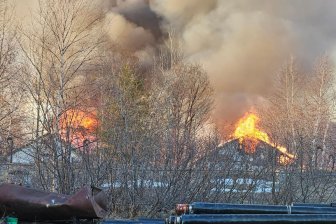OTTAWA – The federal First Nations policing program is bedevilled by poor allocation of money, shoddy buildings and lack of transparency, auditor general Michael Ferguson says.

The policing program, created in 1991 to address concerns about policing in aboriginal communities, involves negotiation and funding of agreements between the federal government, provincial or territorial governments, and First Nations and Inuit settlements.
Federal expenditures for the program totalled about $1.7 billion through 2012-13. At last count, 442 of the 593 First Nations communities across Canada were receiving services from one or more agreements funded by the program.
The program is intended to provide these communities with policing services other than those the province covers, but Ferguson said in a report Tuesday that the program was sometimes used to replace core services normally provided by the provinces.
Auditors from his office surveyed 10 First Nations chiefs with self-administered policing services, with five saying their services had replaced the provincial policing in their communities.
Public Safety Canada, the department responsible for the program, lacks reasonable assurance that policing facilities in First Nations communities are adequate, the report says.
Ferguson found the department does not systematically collect information about whether facilities maintained by First Nations comply with federal building and fire codes, or applicable provincial standards.
In visiting six fly-in communities in Ontario, auditors observed instances in which officers were living in houses “that were crowded, contained mould, and were in a state of disrepair.”
Other problems included holding cells that were too small, unfinished construction and a lack of reception and community meeting rooms.
Public Safety’s practices for assessing applicants to the program, selecting recipients and allocating money were not transparent, the report says. In addition, assessments and selection decisions were not adequately documented, meaning they could be considered arbitrary.
Ferguson also found First Nations were not meaningfully included in the negotiation of agreements. For seven of nine new or renewed policing agreements examined, there was no documented evidence of the nature and extend of input by aboriginal communities.
Thirty agreement-holders had less than one month’s notice to complete negotiations of agreements that were slated to expire March 31 of last year, the auditors noted.
“The program is not working as intended, and many issues persist,” Ferguson said.
Ferguson also found that certain elements of the federal First Nations Policing policy principles were not fully incorporated into agreements, and that Public Safety did not measure and report on whether the program’s objectives were being achieved.
Public Safety Canada agreed with the auditor general’s recommendations.
Follow @JimBronskill on Twitter



Comments